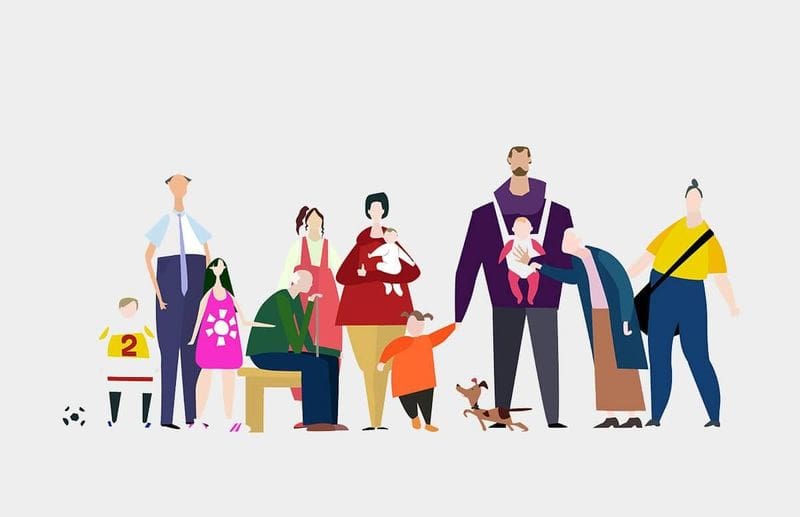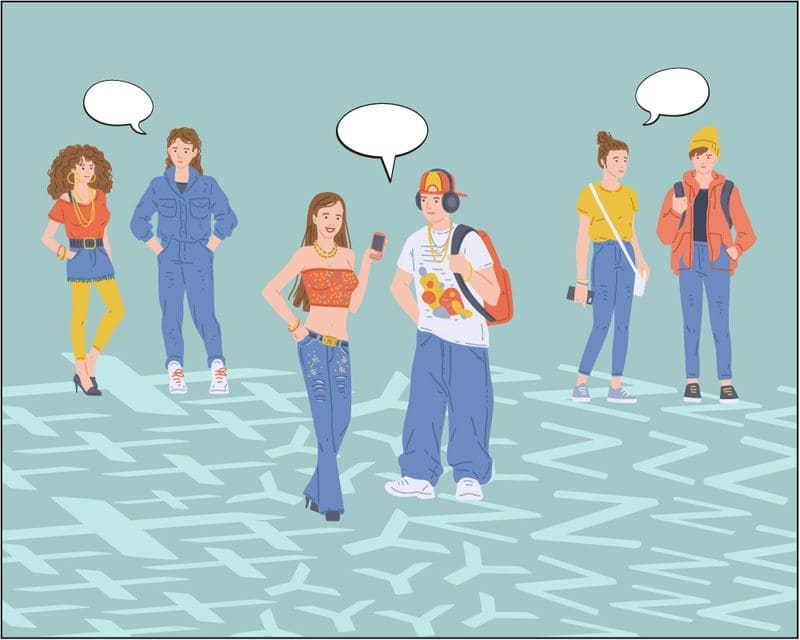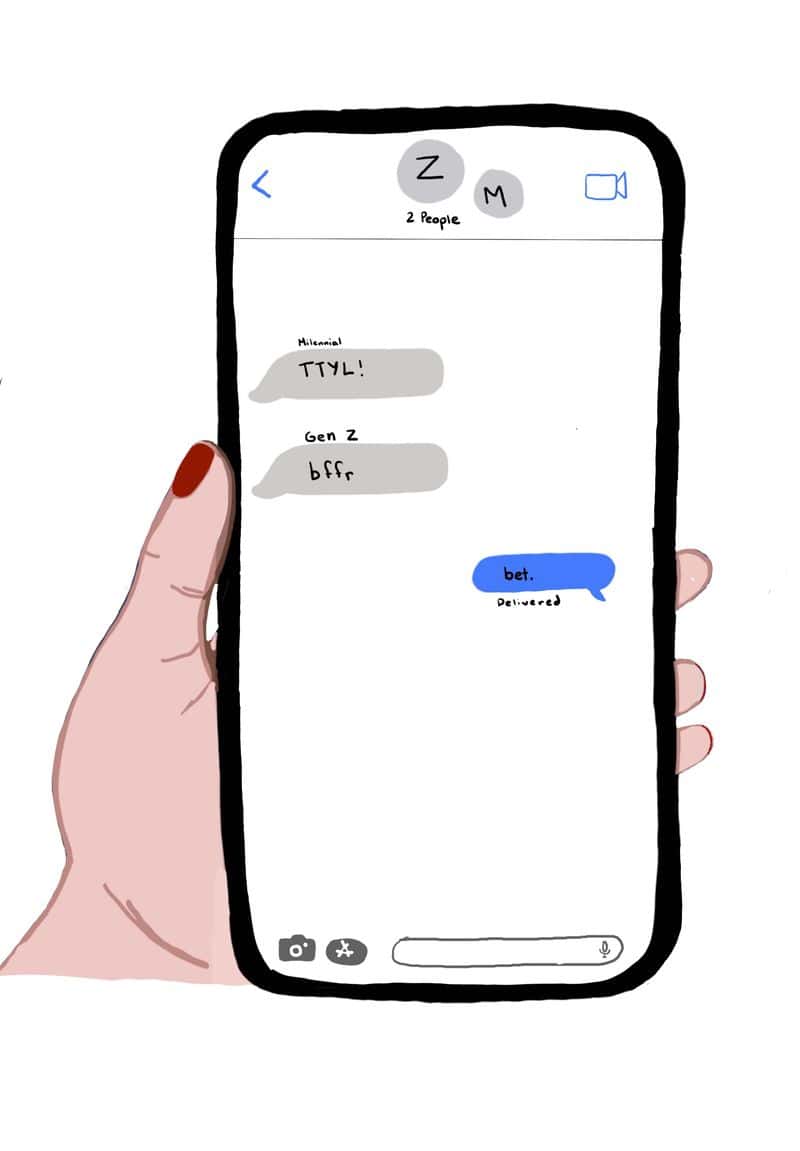Language evolves, and with it, the meanings and connotations of words and phrases. While younger generations embrace new expressions and slang, some phrases can unintentionally ruffle the feathers of older folks, particularly Baby Boomers. This generational dynamic is fascinating because it highlights not only differences in communication styles but also shifts in cultural values and priorities. The advent of technology and social media has accelerated this linguistic evolution, creating a gap that can sometimes lead to misunderstandings or even conflict. Here, we explore ten phrases that might raise eyebrows among Boomers but are met with nonchalance by today’s youth.
1. OK Boomer

The phrase “OK Boomer” encapsulates a dismissive attitude towards the perceived outdated opinions of older generations, particularly Boomers. It emerged as a viral phenomenon on social media as a retort to attitudes seen as conservative or out-of-touch. For Boomers, this phrase can feel like an outright dismissal of their views and experiences, almost like saying their opinions no longer matter. However, younger people often use it as a humorous or sarcastic way to highlight generational differences without any malice. Despite its potential to offend, it’s often used in good-natured ribbing rather than serious confrontation, adding to its complexity.
2. No worries

‘No worries’ is a phrase that emphasizes a laid-back approach to minor inconveniences. Millennials and Gen Z often use it to convey that everything is fine and there’s no need for concern. However, Boomers may interpret this as a lack of seriousness or responsibility, especially in professional contexts. This phrase can sometimes come across as an indication that the speaker is not fully engaged or committed. Nonetheless, among younger people, it’s a friendly assurance, intended to diffuse tension and create a more relaxed atmosphere. This cross-generational misunderstanding highlights how different phrases can carry varying weights.
3. Adulting

The term ‘adulting’ is used by younger generations to describe completing everyday tasks associated with adulthood, like paying bills or cooking meals. While Boomers may find this term trivializes responsibilities they’ve long accepted as part of life, younger people use it to celebrate small victories in navigating adult life. To them, ‘adulting’ is often used in a self-deprecating manner, acknowledging that growing up involves challenges and learning curves. This term reflects how younger generations view adulthood as a series of accomplishments, each deserving of recognition, rather than a fixed state of being. It’s a linguistic nod to modern life’s complexities.
4. Triggered

‘Triggered’ originally referred to psychological trauma responses but has been co-opted by younger generations to describe mild irritations or offenses, often humorously. For Boomers, the casual use of ‘triggered’ may seem like an inappropriate dilution of its serious origins, potentially undermining those who genuinely experience trauma. However, among younger people, it’s frequently an exaggeration intended for comedic effect or to mock overly sensitive reactions. This linguistic trend highlights how language evolves over time, often taking serious terms and repurposing them for everyday situations, sometimes to the befuddlement of older generations. It’s a testament to cultural shifts in communication.
5. Ghosting

‘Ghosting’ refers to the act of ending a relationship or communication abruptly without explanation, primarily over digital platforms. Younger people often use it to describe a scenario where someone disappears from contact, leaving the other party in uncertainty. Boomers may find this term uncomfortable as it reflects a perceived decline in traditional communication norms and etiquette. For the younger generations, ghosting is sometimes seen as an unfortunate but common part of modern dating and social interactions. It highlights a shift towards more casual, less confrontational means of breaking off relationships, which can be disconcerting for those used to more direct approaches.
6. Karen

The term ‘Karen’ has become a cultural shorthand for describing someone, usually a middle-aged woman, perceived as entitled or demanding beyond what is considered reasonable. Many Boomers find this term offensive because it stereotypes and often unfairly targets individuals based on gender and age. To younger people, however, ‘Karen’ is used to call out behaviors that are seen as unreasonable or disproportionately privileged. This generational schism reflects broader societal conversations about privilege and accountability. Despite its controversial nature, ‘Karen’ remains a popular term, embraced for its ability to quickly convey complex social dynamics with humorous undertones.
7. FOMO

‘FOMO’, or ‘Fear of Missing Out’, encapsulates the anxiety of missing exciting events, fueled by social media highlights. Boomers might view this as a trivial or superficial concern, questioning why such anxiety is necessary. Conversely, younger people experience ‘FOMO’ as a genuine feeling, exacerbated by the constant connectivity of digital platforms. It underscores a shift towards valuing experiences and participation, driven by the visibility of peers’ activities online. For many, ‘FOMO’ is a reminder of the pressures of staying socially relevant, a concept that can be difficult for older generations to fully grasp, rooted in modern social dynamics.
8. Bae

The term ‘bae’, short for ‘before anyone else’, is affectionate slang used to describe a significant other. While Boomers might find the term overly casual or even nonsensical, younger generations embrace it as a playful expression of affection. The term’s simplicity and informality reflect a departure from more formal or traditional terms of endearment. It’s part of a broader trend towards more relaxed and approachable language in relationships. Although it may seem trivial or confusing to some, for many young people, using ‘bae’ is a way to express closeness and prioritize loved ones in a lighthearted manner.
9. Yas

‘Yas’ is an enthusiastic affirmation, often used to express excitement or approval. This term gained popularity through social media and pop culture, notably among younger audiences. Boomers might find it perplexing or overly dramatic, perceiving it as an exaggeration of simple agreement. For younger generations, ‘Yas’ is a fun, emphatic way to show enthusiasm, often used in celebratory contexts. Its exaggerated tone is part of what makes it appealing, fitting well with the vibrant, expressive communication styles prevalent among Millennials and Gen Z. This word exemplifies how language can shift towards more expressive forms over time.
10. Flex

‘Flex’ is slang for showing off, often used when someone is displaying wealth or achievements. While Boomers might see this as bragging or in poor taste, younger generations use ‘flex’ more lightly, often in jest. The term captures a cultural shift towards sharing accomplishments and possessions openly, a behavior encouraged by social media. For many young people, ‘flexing’ is about self-expression and confidence rather than mere vanity. It reflects a nuanced understanding of personal branding and identity in the digital age, often misunderstood by those who see it as self-aggrandizing. The term highlights evolving attitudes towards success and visibility.

Well, hello there!
My name is Jennifer. Besides being an orthodontist, I am a mother to 3 playful boys. In this motherhood journey, I can say I will never know everything. That’s why I always strive to read a lot, and that’s why I started writing about all the smithereens I came across so that you can have everything in one place! Enjoy and stay positive; you’ve got this!

